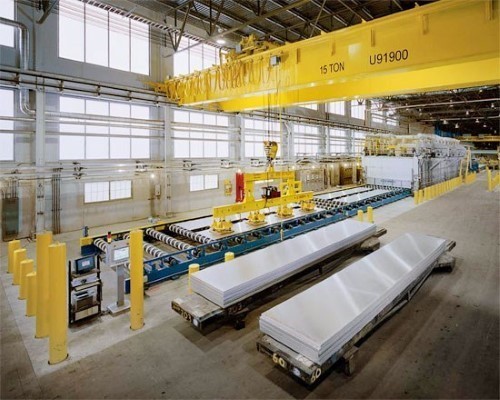

Kaiser Aluminum Corporation, a leading producer of semi-fabricated specialty aluminium products, announced second quarter and first half 2019 results.
For the second quarter 2019, the company reported net sales of $375 million, from $415 million last year, reflecting an 8% decrease in shipments and a 2% decrease in average selling price. Value added revenue declined slightly to $209 million.
{alcircleadd}Adjusted consolidated EBITDA stood at $48 million, down $7 million YoY. Net income was $19 million, compared to net income of $21 million. Excluding the impact of non-run-rate items, adjusted net income was $23 million.

For the first half of 2019, net sales were $771 million, reflecting a 5% decrease in shipments and a 1% increase in average selling price. Value added revenue increased 4% to $428 million. Higher value added revenue reflected improved pricing on non-contract sales, higher aerospace/high strength shipments and lower automotive and general engineering shipments.
Adjusted consolidated EBITDA stood at $104 million, reflecting continued strength in demand for the Company's aerospace products and improved pricing on non-contract sales that more than offset the approximately $15 million negative impact related to the Trentwood planned and unplanned downtime and lower automotive shipments. Net income was $47 million.
Jack A. Hockema, Chairman and Chief Executive Officer said: “Kaiser Aluminum generated solid second quarter 2019 results despite the impact of the Trentwood planned maintenance outage on our largest casting complex, the hot line and large plate stretcher. Excellent planning and execution by our Trentwood team resulted in a one-time EBITDA impact from maintenance costs, operating inefficiencies, and lost production and shipments of approximately $10 million, substantially lower than the previously anticipated $15 million impact.”
“Despite the production constraints, our aerospace shipments during the quarter continued to reflect a very strong order book. Similar to the first quarter 2019, general engineering shipments were constrained as we prioritized allocation of our heat treat plate capacity to meet aerospace customer commitments. Automotive shipments reflected the transition from programs reaching end-of-life to new program launches.”
“Although timing of the Boeing 737-MAX resolution is uncertain, our second half 2019 aerospace order book is strong with solid visibility well into 2020,” said Mr. Hockema. “We expect our new automotive programs will continue to gather momentum in the second half with increased year-over-year shipments, and, as we have noted previously, we remain very optimistic for strong automotive content growth in 2020-2021. Industrial demand also remains strong, but is moderating, and we anticipate normal seasonal demand weakness in the second half 2019.”
“Our outlook for the full year 2019 remains unchanged. Despite the drag on first half results from planned and unplanned downtime at Trentwood, we continue to anticipate EBITDA margin above 25% and a low to mid-single digit percent year-over-year increase in both shipments and value added revenue,” concluded Mr. Hockema.
Responses








